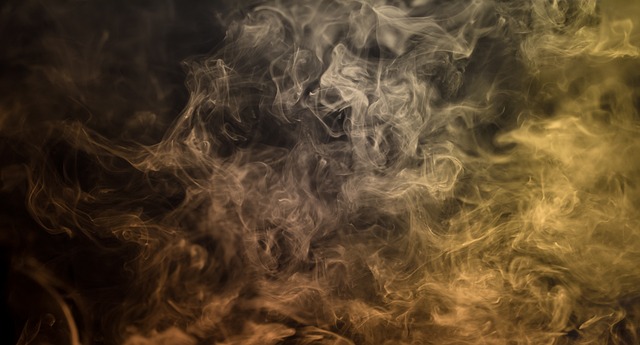Can You Vape Through Your Nose After Wisdom Teeth? Truth Unveiled
Wisdom teeth extraction is a common dental procedure that many of us go through at some point in our lives. While the recovery period may vary from person to person, one question that often arises is whether it is safe to indulge in vaping during this time. With the rise in popularity of e-cigarettes, it’s crucial to separate fact from fiction. In this article, we will delve into the truth behind the common query: Can you vape through your nose after wisdom teeth extraction? Prepare to have your doubts laid to rest as we unravel the reality behind this topic with confidence, knowledge, and a clear understanding of the facts.
1. Understanding the Impact of Wisdom Teeth Extraction on Vaping: Unveiling the Truth
Wisdom teeth extraction is a common oral surgery procedure that aims to remove the third molars located at the back of the mouth. While the impact of this procedure on various aspects of oral health is well-understood, there has been limited research on its specific relationship with vaping. In this post, we aim to shed light on the truth behind the potential impact of wisdom teeth extraction on vaping habits.
1. Increased Sensitivity: After wisdom teeth extraction, it is common to experience increased sensitivity in the mouth. This heightened sensitivity may be particularly noticeable when vaping, as the heat and chemicals from the vape can irritate the healing gums and extraction site. It is important to be mindful of this sensitivity and adjust vaping habits accordingly, such as using a lower temperature setting or avoiding vaping altogether during the initial healing period.
2. Risk of Dry Socket: Dry socket, a painful condition that occurs when the blood clot at the extraction site becomes dislodged or dissolves, is a potential complication of wisdom teeth extraction. Vaping, which involves sucking on a device and inhaling, may create negative pressure in the mouth that can disrupt the healing process. To minimize the risk of dry socket, it is recommended to refrain from vaping for a few days after the procedure, allowing the blood clot to form and stabilize at the extraction site.

2. The Science Behind Nasal Vaping After Wisdom Teeth Removal: Separating Fact from Fiction
When it comes to nasal vaping after wisdom teeth removal, it’s important to separate fact from fiction. There are many claims and misconceptions surrounding this topic, but understanding the science behind it can help you make an informed decision. Here are some key points to consider:
The Benefits:
- Nasal vaping can provide temporary relief from pain and discomfort after wisdom teeth removal.
- It may help reduce swelling and inflammation in the nasal passages.
- This method allows for targeted delivery of medication, providing quicker and more effective results.
The Risks:
- Excessive use of nasal vaping can lead to dependency and addiction.
- It may cause irritation, dryness, or damage to the nasal tissues.
- Not all medications or substances are suitable for nasal vaping, so it’s important to consult with a healthcare professional.
By understanding the science behind nasal vaping after wisdom teeth removal, you can make an informed decision about whether it’s the right option for you. Remember to consult with your healthcare provider for personalized advice and guidance.

3. Exploring the Feasibility of Vaping through the Nose Post Wisdom Teeth Extraction
Vaping has gained popularity as an alternative to traditional smoking, but have you ever considered vaping through the nose? This post aims to explore the feasibility of nose vaping specifically after wisdom teeth extraction. While this may seem like an unconventional method, it is essential to consider all options for a comfortable recovery.
1. Reduced irritation: Nose vaping can potentially minimize irritation to the surgical site after wisdom teeth extraction, as the vapor bypasses the mouth entirely. This may be particularly beneficial for individuals who find it challenging to avoid vaping or smoking during the recovery period.
2. Decreased risk of dry socket: Dry socket is a common complication after wisdom teeth extraction, characterized by the dislodgement of the blood clot that forms in the socket. Nose vaping eliminates the risk of suction or negative pressure that could dislodge the clot, reducing the likelihood of developing dry socket.

4. Unveiling the Potential Risks and Benefits of Nasal Vaping Following Wisdom Teeth Surgery
Nasal vaping is a relatively new trend that has gained popularity among individuals seeking an alternative to traditional smoking methods. However, it is important to understand the potential risks and benefits associated with nasal vaping, particularly following wisdom teeth surgery.
Potential Risks:
- Increased risk of infection: Nasal vaping involves inhaling substances directly through the nostrils, which can potentially introduce bacteria or other harmful microorganisms to the surgical site, increasing the risk of infection.
- Delayed healing process: The heat and chemicals involved in nasal vaping may have an adverse effect on the healing process following wisdom teeth surgery, potentially leading to delayed recovery.
- Allergic reactions: Some individuals may be allergic to certain substances used in nasal vaping, which can lead to allergic reactions such as nasal congestion, sneezing, or even more severe symptoms.
Potential Benefits:
- Reduced pain and discomfort: Nasal vaping has been reported to provide temporary relief from pain and discomfort following wisdom teeth surgery, making it an attractive option for some patients.
- Convenience and portability: Unlike traditional smoking methods, nasal vaping devices are small and easy to carry, allowing patients to use them on-the-go without much hassle.
- No impact on oral health: Since nasal vaping does not involve direct contact with the oral cavity, it does not pose a risk to oral health or interfere with the healing process of the surgical site.

5. Expert Insights on Nasal Vaping: Can It Be a Viable Option After Wisdom Teeth Removal?
After undergoing wisdom teeth removal, patients often seek alternative methods for nicotine intake during the recovery period. One such option that has gained attention is nasal vaping. To shed light on this topic, we have gathered expert insights to help you understand whether nasal vaping can be a viable option after wisdom teeth removal.
1. Potential Benefits of Nasal Vaping:
- Nasal vaping may offer a way to satisfy nicotine cravings without the need for oral inhalation, thereby reducing the risk of disturbing the healing process after wisdom teeth removal.
- Since nasal vaping bypasses the throat and mouth, it eliminates the potential for irritation or discomfort that can occur when using traditional vaping methods.
- Some experts argue that nasal vaping could potentially minimize the risk of dry sockets, a common complication following wisdom teeth extraction, as it does not involve sucking or drawing on a device.
2. Important Considerations:
- While nasal vaping may seem like a viable option, it is crucial to consult with your dentist or oral surgeon before considering this method. They can evaluate your specific case and advise you on the best course of action.
- It is important to note that nasal vaping is a relatively new concept, and there is limited research on its safety and long-term effects. As such, proceeding with caution is recommended.
- Additionally, it is crucial to use reputable and quality nasal vaping products to minimize any potential risks or complications. Always follow the manufacturer’s instructions and guidelines.
Frequently Asked Questions
Q: Can you vape through your nose after wisdom teeth extraction?
A: No, it is not advisable to vape through your nose after wisdom teeth extraction.
Q: Why is it not recommended?
A: Vaping through your nose can potentially disrupt the healing process and cause complications.
Q: What are the risks involved?
A: Risks include infection, dry socket, delayed healing, and increased pain.
Q: Can vaping through the nose cause an infection?
A: Yes, vaping through the nose can introduce bacteria into the surgical site, increasing the risk of infection.
Q: What is dry socket, and how does vaping through the nose contribute to it?
A: Dry socket is a painful condition that occurs when the blood clot that forms after tooth extraction becomes dislodged or dissolves, exposing the underlying nerves and bone. Vaping through the nose can create suction that may dislodge the blood clot, leading to dry socket.
Q: Does vaping through the nose delay the healing process?
A: Yes, vaping through the nose can delay the healing process by irritating the surgical site and inhibiting proper blood flow, which is crucial for efficient healing.
Q: Will vaping through the nose increase pain after wisdom teeth removal?
A: Yes, vaping through the nose can increase pain levels due to the potential disruption of the healing process and the risk of complications such as dry socket.
Q: Are there any alternatives to vaping during the recovery period?
A: Yes, during the recovery period, it is recommended to avoid vaping altogether. However, if you wish to continue using nicotine, alternative methods such as nicotine patches or gum can be considered after consulting with your dentist or oral surgeon.
Q: How long should one wait before vaping after wisdom teeth extraction?
A: It is best to wait until the surgical site has fully healed and your dentist or oral surgeon gives you the green light to resume vaping. This typically takes around 7-10 days, but it can vary depending on individual healing abilities.
Q: What steps should be taken to ensure a smooth recovery after wisdom teeth extraction?
A: It is essential to follow your dentist or oral surgeon’s post-operative instructions, which may include avoiding smoking or vaping, maintaining good oral hygiene, and taking prescribed medications as directed. Additionally, consuming soft foods, applying ice packs, and avoiding strenuous activities can aid in a smooth recovery.
The Way Forward
In conclusion, the notion of vaping through your nose after wisdom teeth removal has been thoroughly debunked. It is important to understand that the nasal passages are not designed to accommodate the inhalation of vapor. While some individuals may have attempted this unconventional method, it is not recommended by medical professionals due to potential risks and complications.
1. Wisdom teeth removal is a common procedure that requires proper aftercare.
2. Vaping through your nose is not a safe or practical alternative during the healing process.
3. Nasal passages are not designed to accommodate the inhalation of vapor.
4. Medical professionals strongly advise against vaping through your nose post-wisdom teeth removal.
5. Follow the recommended guidelines provided by your dentist or oral surgeon for a smooth recovery.
Remember, it is crucial to prioritize your health and consult with a healthcare professional for proper guidance and advice.






